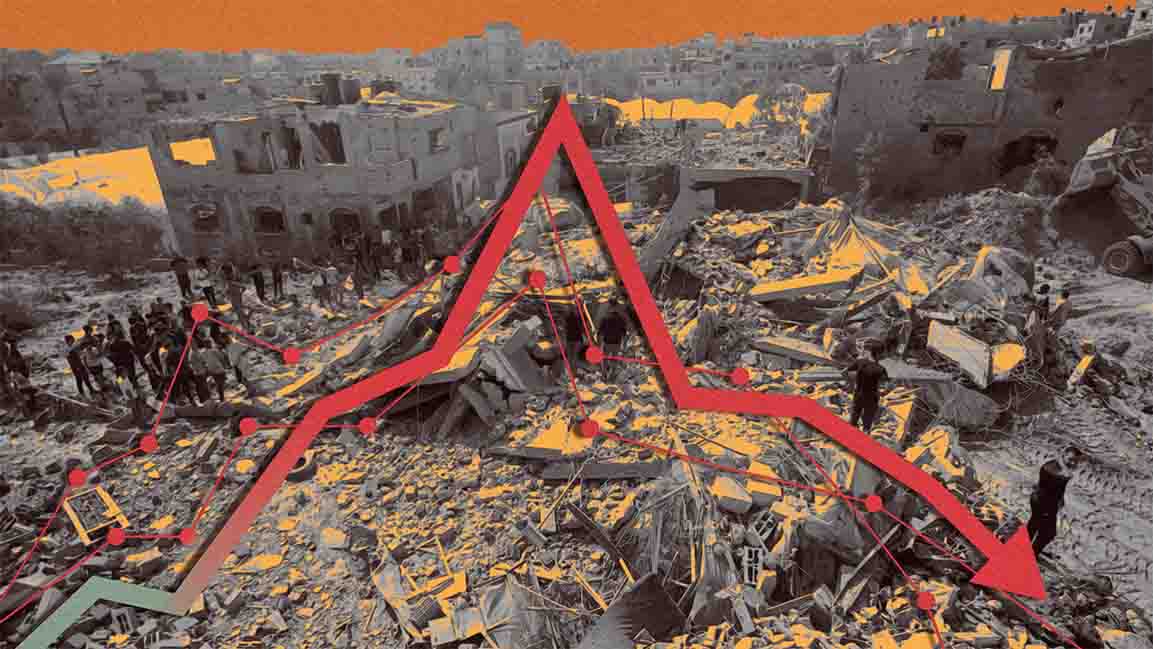- | 11:00 am
Israel-Hamas war affecting regional economies, warns IMF chief
Kristalina Georgieva says economic “chains of the impact” are already visible in neighboring countries such as Egypt, Lebanon and Jordan.

The Israel-Gaza war has not only been a humanitarian catastrophe but also brought economic devastation to Palestine. According to international organizations, it is expected to have a chain effect on neighboring countries and the global economy.
Chief of the International Monetary Fund (IMF), Kristalina Georgieva, warns that the war will result in more economic jitters for an “already anxious world.”
She explains the “chains of the impact” are already being felt in neighboring countries in neighboring countries such as Egypt, Lebanon, and Jordan, adding that the instability could “kill” tourist revenue inflows.
A report by the UN Conference on Trade and Development (UNCTAD) also showed that the outlook regarding the Palestinian economy was already grim before the war, and growth remained “below potential in 2022 as persistent challenges intensified.”
“These include loss of land and natural resources to Israeli settlements, endemic poverty, a shrinking fiscal space, declining foreign aid, and the build-up of public and private debt,” said UNCTAD.
Palestine’s GDP is only a fraction of Israel’s, currently standing at just 8% of Israel’s. Despite a 3.9% growth in Palestinian gross domestic product in 2022, The country’s GDP remained 8.6% below its pre-coronavirus level in 2019.
Unemployment rates remained high last year, at 24% across the occupied Palestinian territory, 13% in the West Bank, and 45% in Gaza, with women and youth being hit hardest. UNCTAD also reported that poverty increased, rendering 40% of the population needing humanitarian assistance.
The UNCTAD report said foreign aid had helped Palestine to manage the impact of occupation in the past. However, in 2022, the Palestinian government received only $250 million in donor budget support and $300 million for development projects.
“This is a steep decline from a total $2 billion, or 27%t of GDP in 2008, to less than 3% of GDP in 2022,” UNCTAD said.
According to a World Bank report published last month, the Palestinian economy is expected to continue operating well below its potential, and growth is projected to hover at about 3%.
Georgieva explains that this instability will make investors hesitant to invest in these countries, and the cost of insurance for transporting goods will increase.
The war is happening at a time when “growth is slow, interest rates are high, [and] the cost of servicing debt has gone up,” she said.
More than 5,700 Palestinians, mainly civilians, have been killed so far in Gaza during Israeli bombardments in retaliation for the Hamas attacks on October 7.
































